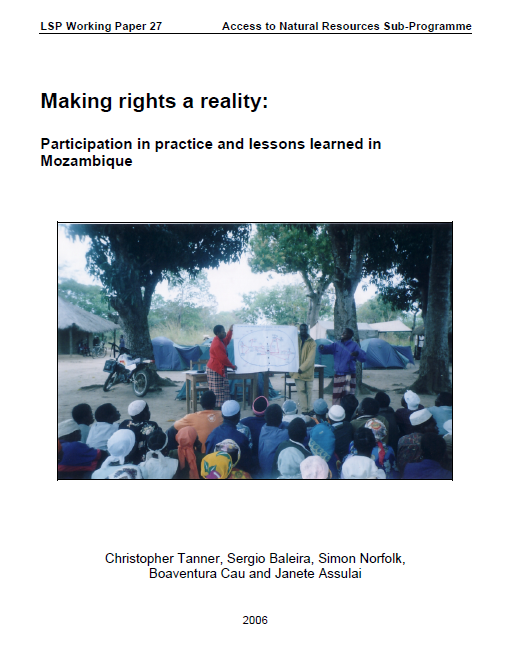Focal point
Location
The Food and Agriculture Organization of the United Nations leads international efforts to defeat hunger. Serving both developed and developing countries, FAO acts as a neutral forum where all nations meet as equals to negotiate agreements and debate policy. FAO is also a source of knowledge and information. We help developing countries and countries in transition modernize and improve agriculture, forestry and fisheries practices and ensure good nutrition for all. Since our founding in 1945, we have focused special attention on developing rural areas, home to 70 percent of the world's poor and hungry people.
Members:
Resources
Displaying 3171 - 3175 of 5074Community Forest Management (CFM) in Vietnam: Sustainable Forest Management and Benefit Sharing
The concept of Community Forest Management (CFM) was officially recognized for the first time in Vietnam with the implementation of the Law on Forest Protection and Development (2004).
Making rights a reality: Participation in practice and lessons learned in Mozambique
This paper represents part of an area of work which analyses access to natural resources in Mozambique. An initial paper examined the extent to which Mozambique’s recent regulatory changes to natural resource access and management have had their intended effects (LSP Working Paper 17: Norfolk, S. (2004). “Examining access to natural resources and linkages to sustainable livelihoods: a case study of Mozambique”). This paper is complemented by LSP Working Paper 28: Tanner et al. (2006).
Land tenure alternative conflict management
This training manual focuses on how to manage and resolve conflicts over land tenure rights, security of tenure and land access in the field of rural development. It results from complementary activities undertaken within FAO's Livelihood Support Programme (LSP) and the Land Tenure and Management Unit and with the International Land Coalition. It addresses the specific issues of land tenure identified in the volume Negotiation and Mediation Techniques for Natural Resource Management published by the LSP.
Changes in in "customary" land tenure systems in Africa
Across rural Africa, land legislation struggles to be properly implemented, and most resource users gain access to land on the basis of local land tenure systems.
Development and protection of rice-fish culture in China: policy options
The project objective is to recognize and promote multiple values of the rice-fish system for livelihoods, ecological and cultural preservation by evaluating policies, institutions and technological developments that impact on farmers’ practices of rice-fish system, and developing a network of demonstration sites and partners in provinces of Zhejiang and Guizhou, China.








